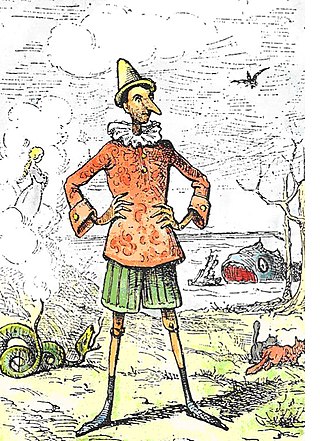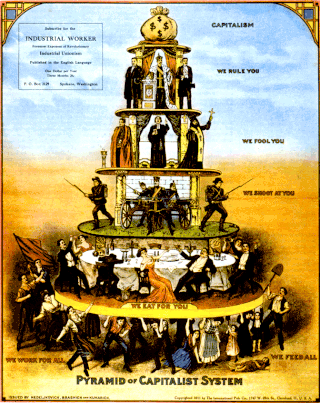Related Research Articles
Hold come what may is a phrase popularized by logician Willard Van Orman Quine. Beliefs that are "held come what may" are beliefs one is unwilling to give up, regardless of any evidence with which one might be presented.
Perjury is the intentional act of swearing a false oath or falsifying an affirmation to tell the truth, whether spoken or in writing, concerning matters material to an official proceeding.
In English, the phrase rule of thumb refers to an approximate method for doing something, based on practical experience rather than theory. This usage of the phrase can be traced back to the 17th century and has been associated with various trades where quantities were measured by comparison to the width or length of a thumb.

A fact is a datum about one or more aspects of a circumstance, which, if accepted as true and proven true, allows a logical conclusion to be reached on a true–false evaluation. Standard reference works are often used to check facts. Scientific facts are verified by repeatable careful observation or measurement by experiments or other means.
Police perjury is the act of a police officer knowingly giving false testimony. It is typically used in a criminal trial to "make the case" against defendants believed by the police to be guilty when irregularities during the suspects' arrest or search threaten to result in their acquittal. It also can be extended to encompass substantive misstatements of fact to convict those whom the police believe to be guilty, procedural misstatements to "justify" a search and seizure, or even the inclusion of statements to frame an innocent citizen. More generically, it has been said to be "[l]ying under oath, especially by a police officer, to help get a conviction."
Testimony is a solemn attestation as to the truth of a matter.
An explanation is a set of statements usually constructed to describe a set of facts which clarifies the causes, context, and consequences of those facts. It may establish rules or laws, and may clarify the existing rules or laws in relation to any objects or phenomena examined.
Hearsay is testimony from a witness under oath who is reciting an out-of-court statement that is being offered to prove the truth of the matter asserted.

A lie is an assertion that is believed to be false, typically used with the purpose of deceiving or misleading someone. The practice of communicating lies is called lying. A person who communicates a lie may be termed a liar. Lies can be interpreted as deliberately false statements or misleading statements. Lies may also serve a variety of instrumental, interpersonal, or psychological functions for the individuals who use them.
"There are no atheists in foxholes" is an aphorism used to suggest that times of extreme stress or fear can prompt belief in a higher power. In the context of actual warfare, such a sudden change in belief has been called a foxhole conversion. The logic of the argument is also used to argue for the opposite.
Ceteris paribus (also spelled caeteris paribus; is a Latin phrase, meaning "other things equal"; some other English translations of the phrase are "all other things being equal", "other things held constant", "all else unchanged", and "all else being equal". A statement about a causal, empirical, or logical relation between two states of affairs is ceteris paribus if it is acknowledged that the statement, although usually accurate in expected conditions, can fail because of, or the relation can be abolished by, intervening factors.
A miscarriage of justice occurs when a grossly unfair outcome occurs in a criminal or civil proceeding, such as the conviction and punishment of a person for a crime they did not commit. Miscarriages are also known as wrongful convictions. Innocent people have sometimes ended up in prison for years before their conviction has eventually been overturned. They may be exonerated if new evidence comes to light or it is determined that the police or prosecutor committed some kind of misconduct at the original trial. In some jurisdictions this leads to the payment of compensation.
In criminal law, self-incrimination is the act of exposing oneself generally, by making a statement, "to an accusation or charge of crime; to involve oneself or another [person] in a criminal prosecution or the danger thereof"..
In American law, Scots law, and under the laws of some English-speaking Commonwealth nations, subornation of perjury is the crime of persuading or permitting a person to commit perjury, which is the swearing of a false oath to tell the truth in a legal proceeding, whether spoken or written.
Witness impeachment, in the law of evidence of the United States, is the process of calling into question the credibility of an individual testifying in a trial. The Federal Rules of Evidence contain the rules governing impeachment in US federal courts.
In politics, a litmus test is a question asked of a potential candidate for high office, the answer to which would determine whether the nominating official would proceed with the appointment or nomination. The expression is a metaphor based on the litmus test in chemistry, in which one is able to test the general acidity of a substance, but not its exact pH. Those who must approve a nominee may also be said to apply a litmus test to determine whether the nominee will receive their vote. In these contexts, the phrase comes up most often with respect to nominations to the judiciary.
"The exception that proves the rule" is a saying whose meaning is contested. Henry Watson Fowler's Modern English Usage identifies five ways in which the phrase has been used, and each use makes some sort of reference to the role that a particular case or event takes in relation to a more general rule.

A number of propaganda techniques based on social psychological research are used to generate propaganda. Many of these same techniques can be classified as logical fallacies, since propagandists use arguments that, while sometimes convincing, are not necessarily valid. Propaganda techniques emerge from abusive power and control tactics.

The Shahada, also transliterated as Shahadah, is an Islamic oath and creed, and one of the Five Pillars of Islam and part of the Adhan. It reads: "I bear witness that there is no deity but God, and I bear witness that Muhammad is the Messenger of God."
Perjury is the name of an offence under the Criminal Code. The offence of false evidence under the Penal Code is equivalent.
References
- ↑ Bryan A. Garner ed., Black's Law Dictionary 783 (7th ed. 1999), cited in
- 1 2 Lehman, Jeffrey; Phelps, Shirelle (2005). West's Encyclopedia of American Law, Vol. 5 (2 ed.). Detroit: Thomson/Gale. p. 396. ISBN 9780787663742.
- ↑ The Southeastern reporter, Volume 108